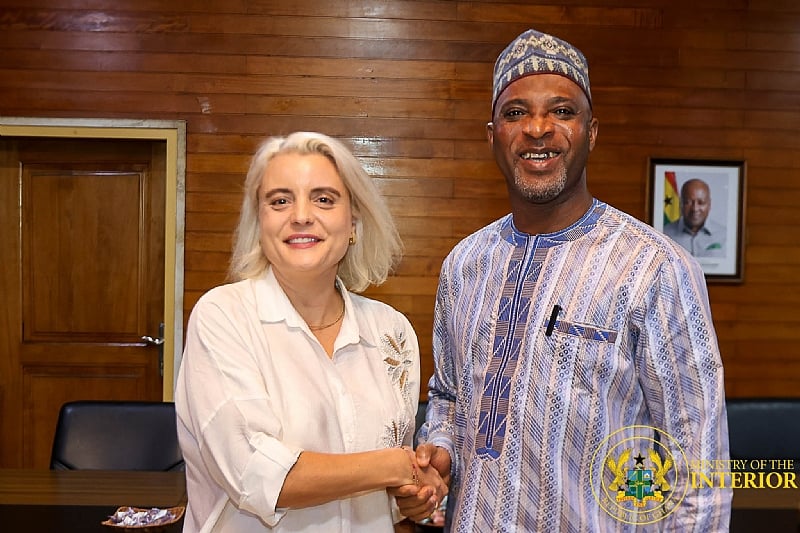The meeting between Ghana’s Minister of the Interior, Mr. Muntaka Mohammed-Mubarak, and the Swiss Ambassador, H.E. Simone Petra Giger, signifies a potential turning point in the bilateral relationship between the two nations. Minister Mubarak’s expressed interest in Swiss prison management models underscores a key area for potential collaboration. Ghana’s prison system, like many others globally, faces challenges related to overcrowding, inadequate resources, and rehabilitation programs. Switzerland, renowned for its innovative and humane approach to incarceration, focusing on reintegration and reducing recidivism, presents a valuable model for Ghana to study and potentially adapt. This signifies a proactive approach by the Ghanaian government to address systemic issues within its correctional system and improve the lives of incarcerated individuals, ultimately contributing to a safer and more just society.
The Minister’s emphasis on fostering a business-friendly environment highlights a crucial aspect of Ghana’s development strategy. Attracting foreign investment and promoting economic growth are paramount to improving living standards and reducing poverty. By engaging with Switzerland, a nation known for its economic stability and strong business practices, Ghana seeks to learn from its successes and attract Swiss investment. This also suggests a recognition of the interconnectedness between internal security, as managed by the Ministry of the Interior, and economic prosperity. A stable and secure environment is a prerequisite for attracting investment and stimulating economic activity.
The Ambassador’s briefing on ongoing and future Swiss projects in Ghana indicates a multifaceted and established relationship between the two countries. While the specifics of these projects remain undisclosed in the initial report, the breadth of Swiss involvement suggests a commitment to long-term engagement in Ghana’s development. This could encompass various sectors, potentially including infrastructure development, education, healthcare, and sustainable development initiatives. Such diverse engagement signifies a holistic approach to development, acknowledging the interconnectedness of various sectors in achieving sustainable and inclusive growth.
The focus on prison reform offers a compelling case study for potential collaboration. Switzerland’s prison system prioritizes rehabilitation and reintegration, offering inmates opportunities for education, vocational training, and therapeutic interventions. This approach contrasts sharply with punitive models that focus solely on punishment, often leading to high recidivism rates. By adopting elements of the Swiss model, Ghana could potentially reduce its prison population, lower recidivism, and contribute to a more productive and integrated society. This requires a significant shift in perspective, moving away from purely punitive measures towards a more restorative justice approach.
The potential benefits of this collaboration extend beyond prison reform. Switzerland’s expertise in areas such as sustainable development, environmental protection, and good governance could provide valuable insights for Ghana. By sharing knowledge and best practices, both nations can contribute to mutual growth and development. This exchange of knowledge fosters a sense of shared responsibility and creates opportunities for innovative solutions to complex challenges. The commitment to continued cooperation signals a long-term vision for the relationship, fostering mutual benefit and shared progress.
This initial meeting serves as a catalyst for deeper engagement and potentially transformative collaboration between Ghana and Switzerland. The shared commitment to peace, stability, and economic growth provides a strong foundation for future partnerships. By leveraging Switzerland’s expertise and experience, Ghana can address critical challenges, promote sustainable development, and build a more prosperous and equitable future for its citizens. This partnership offers a promising model for South-South cooperation, demonstrating the potential for mutual learning and shared progress between nations with diverse backgrounds and experiences. The focus on prison reform, in particular, has the potential to be a groundbreaking initiative, setting a new standard for humane and effective correctional systems in the region.














